How to Determine if You’re a Transgender
Do you feel like a transgender or feel trapped in another body?
Many people suffer from feeling like they are born in the wrong body.
If you have ever had a gut feeling or felt uncomfortable with your gender, it might be that you are one of these people.
It’s like there’s always been something gnawing away at your heart that you couldn’t quite explain, along with a deep sense of dissatisfaction.
And almost always, this is accompanied by a burning desire to express the inner you; it could be then that you’re a transgender.
In fact, “How to determine if I am transgender?” is one of the most Googled questions nowadays, alongside “How do I come out as transgender?”
Figuring out your gender identity can be confusing, but fortunately, some indicators can help point you in the right direction.
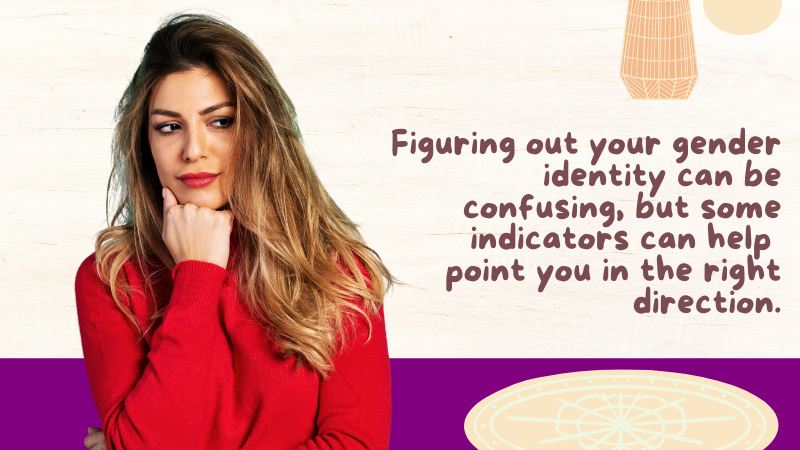
Although, transitioning can be a very confusing time in someone’s life. Not only are you trying to figure out who you are, but some also have to deal with their family and friends who might not always be understanding of what they’re going through.
When feeling lost and overwhelmed knowing you’re transgender, it helps to reach out and not feel ashamed to seek support in the form of community LGBTQ centers. Trust what you are told by an empathic counselor or therapist who specifically practices within the trans community. They are equipped with the guidance, resources, and advice you need through your transition process.
1. What are transgenderism and gender dysphoria
Not far in the past, transgenderism was considered a psychiatric illness and classified as a “gender identity disorder.” Thankfully today, this is no longer true, and the Diagnostic and Statistical Manual of Mental Disorders no longer lists it as such.
The term transgenderism has been long replaced by “gender dysphoria.” It is a complex word that refers to a different gender than the one assigned to a person at birth. Gender dysphoria is a feeling of incongruence between your gender identity and the gender you were labeled at birth.
You feel like your gender identity is the way to go. You could exhibit signs of gender dysphoria from as early as two years old or as late as 40 years old.
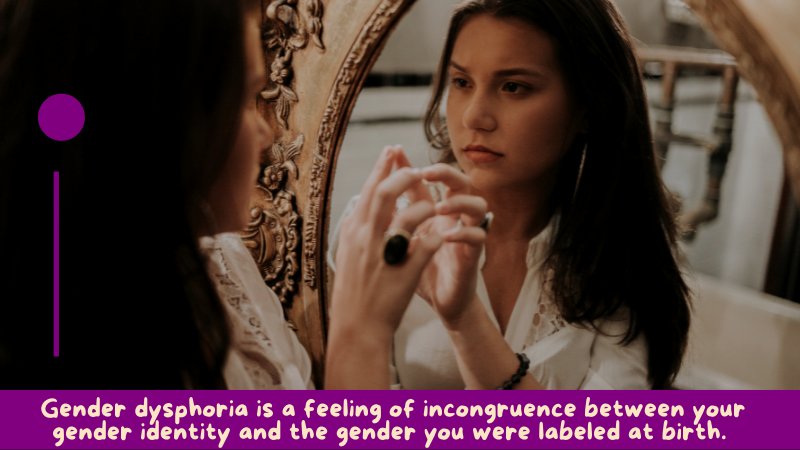
Many transgender people want to live as the gender they most associate with (gender identity). Our sense of who we are and how we see ourselves is referred to as gender identity.
The majority of people identify as “man” or “female.” These identities are sometimes called “binary” identities.
For some, their gender identity is different from their biological sex; the term for this kind of identity is “non-binary.”
The concept of gender has no bearing on their identity for them. These individuals may use many different terms such as agender, gender diverse, gender non-conforming to describe themselves as a group.
To accommodate these individuals’ preferences, it is becoming more common to use genderless pronouns like they/them/theirs when talking about an unknown person.
2. How do you know if you are transgender

If you feel like you have always been in the wrong body, like you have been born a woman but are a man and vice versa, then you are probably transgender. If you are a teen or an adult, you probably wonder how to tell if you are transgender.
This is one of the toughest questions someone can ask themselves. But the truth is, coming out as a transgender person is one of the most important steps you can make in your life. However, it can also be one of the hardest.

There can be a lot of confusion on the topic of gender identity.
But certain signs can point out whether you’re transgender or not.
If you have a strong desire to look like the opposite gender and are experiencing confusion over your gender, that can be a big sign. If this is the case, it might be a good idea to talk to a therapist or someone else you can trust.
It’s also important to consider how your gender identity affects your life and how to cope with it. In addition, many terms are used to describe transgender people.
Some of those are: non-binary, genderqueer, gender-fluid, trans woman, trans man, gender non-conforming, born in the wrong body, transvestite, and crossdresser, to name a few. If you feel like you could be transgender, you should seek a therapist or a doctor.
3. The steps to transition from one gender to another

Transitioning is a complicated process that should not be done alone! This can mean lots of different things for different people, just as there is no one way to go about making such a life-changing decision.
First, determine the degree of transition you want to make. Do you want to get an education on the subject and make your own decision, or do you want to have a therapy session to be sure?
Sometimes an hour-long session is enough to make the decision, but if you’re still unsure after that, you can continue sessions until you feel you’re ready. Once you’ve determined you’re ready, it’s time to start taking steps to transition.
Some might take many years to complete the transition, but for others, it can result from a very thoughtful and careful decision that can happen overnight.

There are two parts to transitioning. The first part is known as a social transition, where you let everyone know that you’re trans, starting with your friends and family.
This can involve telling people that you’re transgender and the pronoun you want them to use for you (she/her, he/her, they/them), and by dressing in ways that help others know about your gender identity.
Also, this can be done by introducing yourself by whatever name feels suitable for your gender identity.
The second part is known as a medical transition. Medical transitions involve taking the proper steps toward getting your body more aligned with how it matches your gender identity.
It could involve medical treatment, hormones, and surgery.
4. How to deal with family and friends who don’t understand
Having family or friends who you care about but who don’t believe in or support your transition can be a difficult experience. This guide will provide tips on dealing with family and friends who don’t understand your situation.
First, it’s important to understand where your family and friends are coming from and recognize their concern for your well-being.
Talking is not always easy, but it’s important not to shut them out.
As you’re talking to them, it’s best to avoid hostile language and stay as calm as possible. Remember that they are loved ones, and they can change!

If your family feels like they’re not coming around to the changes you’re making, try seeking support from not one but two separate groups.
First, you could speak with children of parents who are in a similar situation to yours, and second, you could ask for advice from a therapist who specializes in this area.
Try to relieve some pressure and potential worries by asking your family to get involved with local LGBT groups to meet people who might have the same predicament.
Although this can be an uneasy time for them, it’s also the perfect time frame for your loved ones to begin adjusting and coming around to the new person that you will undoubtedly become when this self-realization finally finds its way into the open.
It is also important that you look after yourself in whatever ways make you feel comfortable during this time.

Do your best to stay on good terms with friends and family who don’t understand your journey. It can be easy to wall yourself off from people you feel don’t support your views.
But, it’s better to keep the lines of communication open and try to find a compromise. Remember, you will find people willing to listen to you and try to understand what you’re going through, but those people can be difficult to find.
It’s often best to learn to deal with the people you know and deal with the loneliness you may feel when you can’t talk to certain people.
5. The costs and process of transitioning
Transitioning is a process that is different for every person. The main thing you should prepare for is the costs.
For example, if individuals change their name and gender, they may need to change their name on their driver’s license and or birth certificate. In order to change these documents, they have to go through a lengthy process.
They have to request a court order with the county court to change the name on their birth certificate. This is a fairly expensive process.
After getting the court order, they have to go to the DMV and the Social Security Administration to make the changes.
In the US, this could amount to $150 to almost $500. The costs of these and other transition fees can be very high, especially when someone is just starting their transition.

If a person wishes to medically transition, hormone replacement therapy is typically seen as an important step. Regular check-ups and prescriptions can cost around $1,500 a year.
For transgender men who take testosterone injections typically cost between $80 and $300 monthly.
If you decide to try using testosterone gels instead, the costs could reach up to an astonishing $1,200 monthly! Gender confirmation surgery or sexual reassignment surgery can cost $30,000 and beyond.
But the procedures provide many trans people with a sense of completion and comfort.

A transgender person should expect to spend money on products such as dresses and accessories. However, it is not something that will necessarily change overnight.
Get at least a few months’ worth of clothes to last you through the transition. You will also have to adjust your bathrooms from male to female or female to male.
6. Resources for transgender people and their families
There are lots of resources available to help transgender people and their families. An example is Trans Lifeline, which is a crisis hotline that is available for transgender people.
There are many other resources available to help transgender people and their families. Listed below are further resources and organizations meant to help transgender people and their families with the transition process.
Combats transphobia and fight for the rights of trans people and non-conforming people all over the world. It’s partners are OutRight Action International, Council for Global Equality, TransRespect.org, Gate.ngo, and OpenSocietyFoundations.org.
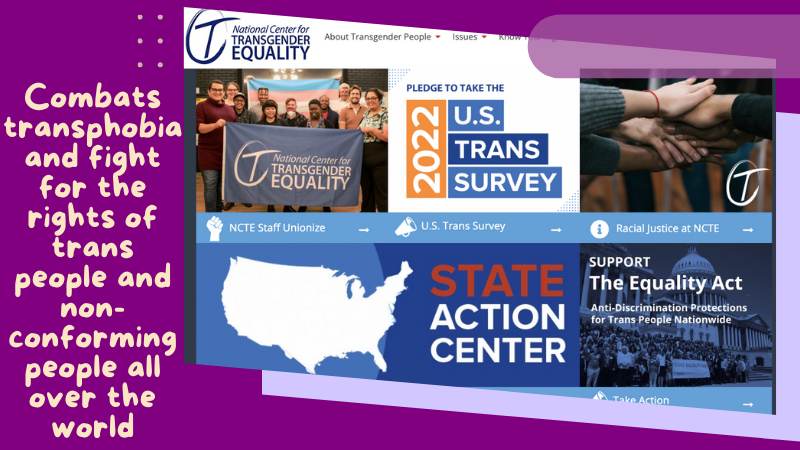
- I AM
Trans People Speak tells stories from the people involved in transgender communities. These are vital for helping people understand what it’s like to be a trans individual living in today’s society.

A Guide to Gender Identity. Learn about being transgender, and the different gender roles. You can be an advocate for people who are transgendered in your country and even around the world.
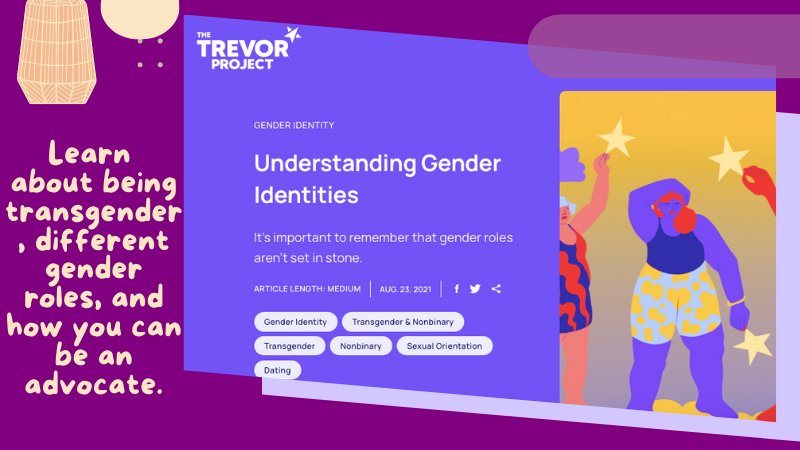
Information about important issues that impact the trans community and resources for trans people regarding legal rights.
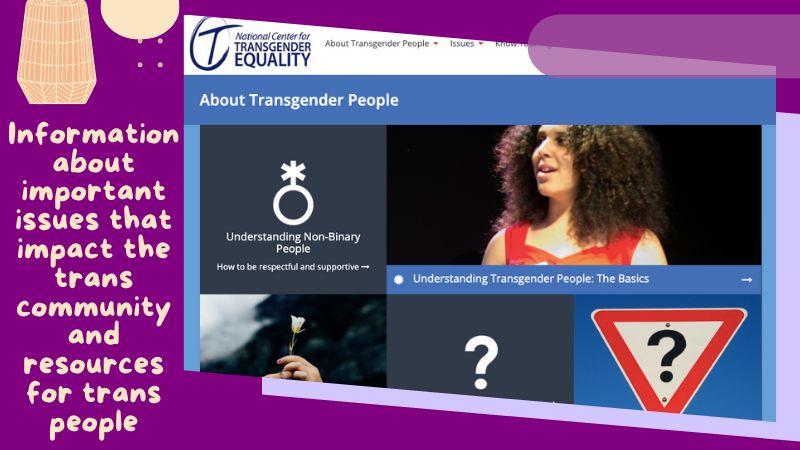
- GLMA: The Gay and Lesbian Medical Association has compiled an extensive list of resources for transgender patients and healthcare providers.
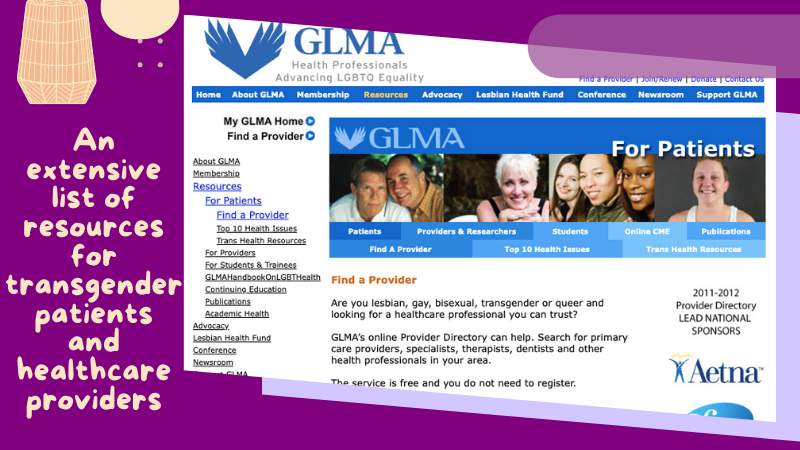
A lot of transgender can be intimidated about coming out to others. Not everyone will respect that you are transgender. There may be some hurdles as you try to be true to yourself. But you shouldn’t worry too much about it.
Conclusion
If you are not sure where to start, articles like this one to make it easier to understand the process. Many resourceful communities will be able to guide and help you in the process of transitioning.
Do not let others intimidate or demean you for being the unique person you are. You deserve to be happy!
Tagged With:Are you a transgender? , how to know a transgender
- How to be a Trans Femboy Influencer in 2024
- 7 Easy Ways to Level Up Your Sexy Femboy Beauty Routine Instantly
- How to Make a Fake Pregnant Belly Look Real: Tips for Every Trimester
- Game On: Sporty Tips for Crossdressers Attending the 2024 Olympics
- How to Pose for Lewd Cosplay Photos for Crossdressers
- How to Explore Crossdresser Bondage Safely and Sensually
- Going Out en Femme – How to Get the Breakthrough
- Gay Crossdresser vs. Sissy Men: What’s the Difference?
- How to Become a Feminine Man: Fashion & Personality
- Sissy Training: A Complete Beginner’s Guide
- First Visit to a Transgender Bar: How to Navigate Your Way
- How to Determine if You’re a Transgender
Established in 2009, We are a recognized manufacturer and seller of professional crossdressing products.
It is our aim to become not just the most creative manufacturer but also a very considerate seller, as we provide the best quality products for crossdressers all around the world.










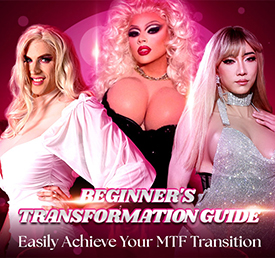








 Breast Forms
Breast Forms  Body Suit
Body Suit  Realistic Mask
Realistic Mask  Femini Girdle
Femini Girdle Hip & Butt Enhancement (8)
Hip & Butt Enhancement (8) Penis Prosthesis
Penis Prosthesis Fake Muscle
Fake Muscle Bikini
Bikini  Wig
Wig  Corsets
Corsets Course
Course service@roanyer.com
service@roanyer.com +8618652200711
+8618652200711 Facebook
Facebook YouTube
YouTube Twitter
Twitter Instagram
Instagram




